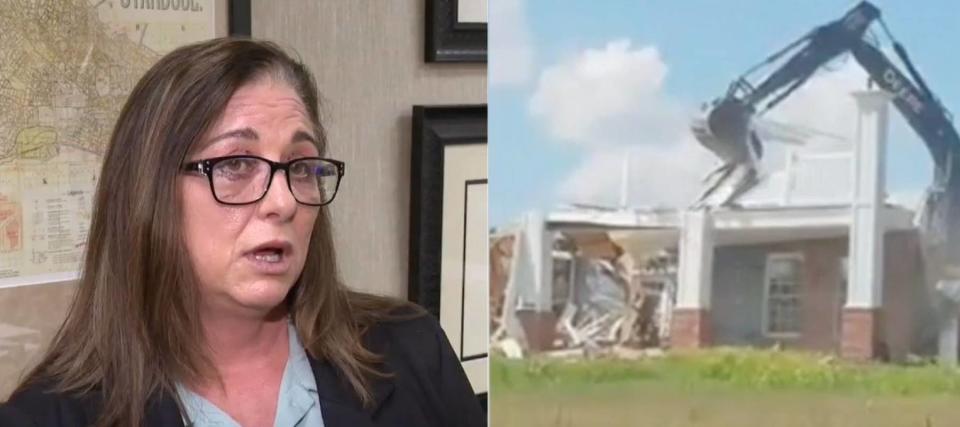This Oklahoma family was awarded $2.9M in lawsuit against turnpike authority — how to fight eminent domain

This Oklahoma County family spent six years fighting for fair compensation after their custom three-story home was reduced to rubble to make way for the Kickapoo Turnpike.
"We built it for our... forever home,” Samantha Brewer told KOKH Fox 25. “We wanted to stay there forever. But it didn't happen that way.”
The family and their attorneys argued the Oklahoma Turnpike Authority (OTA) failed to offer fair compensation to cover the value of their property and the hassle of uprooting their home. But in March, a jury finally awarded the family $2.9 million in compensation.
"They've gone through the wringer on this,” says Nick Atwood, the family’s lawyer with Ritchie Rock & Atwood. “They lost so much.”
Losing their home through eminent domain
The Brewers received a 30-day notice to vacate their home back in 2018 after it was seized by the state through eminent domain — which is when governments take over private property for public use.
Governments typically use eminent domain for transportation infrastructure, water supply, construction of public buildings or for defense readiness purposes. However, there have also been cases for establishing parks, preserving places of historic interest and protecting environmental spaces.
That said, the Fifth Amendment to the U.S. Constitution stipulates private property cannot be seized for public use without providing “just compensation.”
The OTA seized 46 acres of the Brewers’ total 140-acre property, splitting it in half, with its highest offer to the family coming to $1.5 million before litigation, reports KFOR. “It was an insult,” says Brewer.
Still, the legal wranglings might not be over just yet.
“The Brewers’ own expert’s opinion given during testimony was that their property was valued at $1.9 million, which is $1 million less than the ultimate jury award,” the OTA said in a statement shared with KOKH Fox 25. “OTA has 30 days from the judgment date to determine whether it will appeal the ruling and is currently considering how to proceed.”
Read more: These 5 magic money moves will boost you up America's net worth ladder in 2024 — and you can complete each step within minutes. Here's how
The family says it’s important to ‘keep fighting’
While it can be tricky, there are some ways to challenge eminent domain — such as proving you haven’t been offered fair value for your property, or disputing whether it meets the requirements for public use.
"Just don't quit, you know. That's the main thing,” Samantha told KOKH Fox 25. “Keep fighting if you don't feel like you have been treated fairly. Just don't give up."
It can be helpful to work with a lawyer experienced in real estate law and eminent domain to help you with your case.
Rhonda Fisher, a licensed real estate broker and eminent domain expert, tells consumer advocacy website ConsumerNotice.org it can be harder to prove that the government isn’t justified in seizing your property — since they’re more likely to have conducted intensive research and planning.
But disputes often arise when it comes to fair compensation.
“Everyone thinks they know what something is worth. Value and what you are compensated aren’t always the same,” Fisher explains. “The government has a very different view of value versus how an owner may view a property that’s been in their family for 10 generations.”
What to read next
Jeff Bezos and Oprah Winfrey invest in this asset to keep their wealth safe — you may want to do the same in 2024
Owning real estate for 'passive income' is one of the biggest myths in investing — but here's how you can actually make it work
You don't need to invest like Warren Buffett to get rich — this simple technique tops his returns without taking on more risk
This article provides information only and should not be construed as advice. It is provided without warranty of any kind.

 Yahoo Finance
Yahoo Finance 